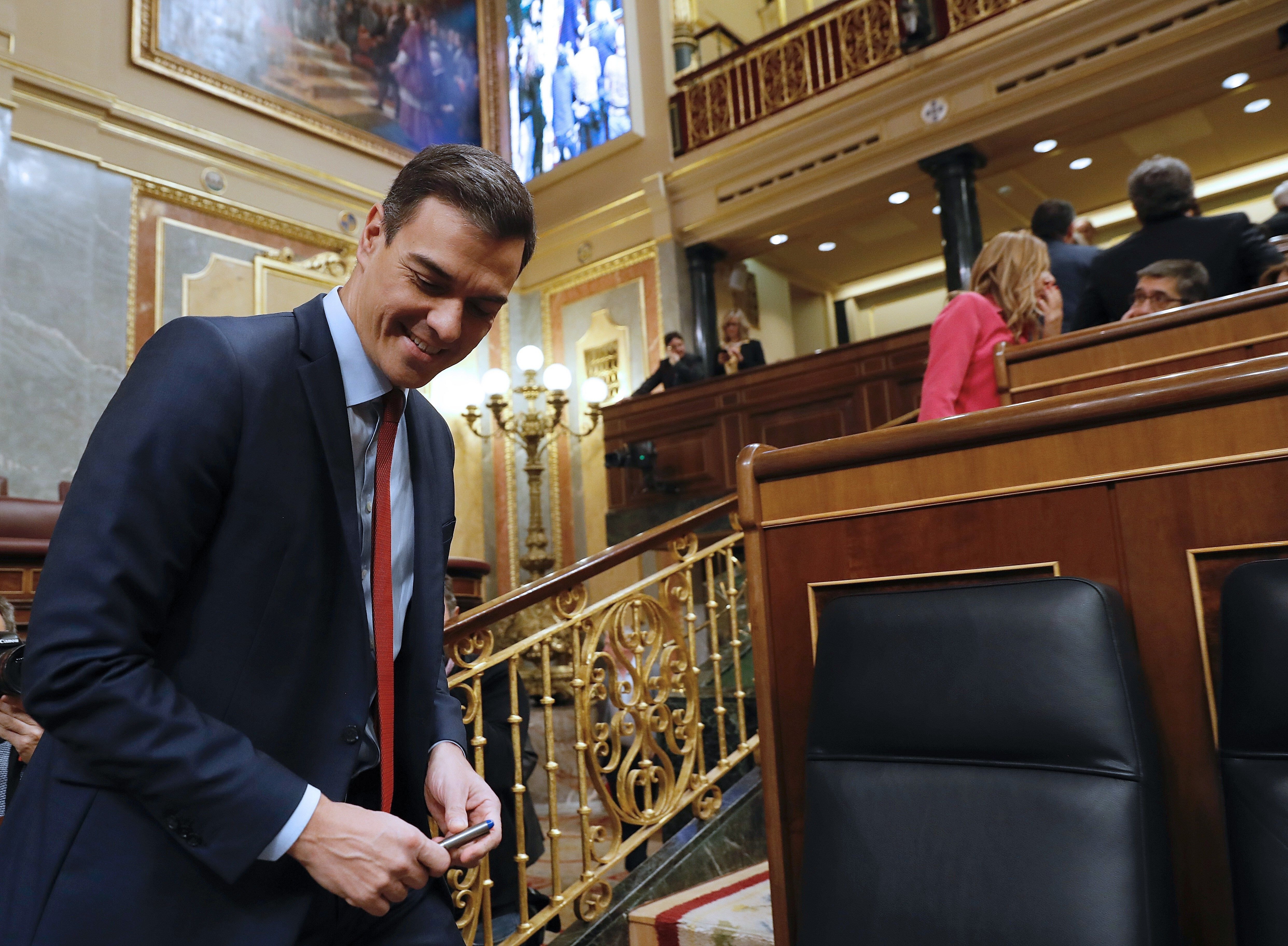Current Spanish prime minister and PSOE party candidate for the country's April 28th election, Pedro Sánchez, has threatened to re-impose direct rule over Catalonia through article 155 of the Constitution if it adopts a unilateral path. This is what Sánchez said in an interview published on Saturday afternoon in El Periódico (link in Spanish).
This is the section of the interview in which Sánchez talks about applying 155:
- With the yellow ribbons, Quim Torra's Catalan government has for the first time crossed the red line of legality. Do you fear that the Catalan government will once again explores the path of unilateral action?
-They already know where that path leads. The democratic and legal state has demonstrated that in the Constitution it has enough elements to restore any unilateral break with the statutory and constitutional framework. Those who consider unilateralism must explain to their citizens why they are doing it.
-You're talking about article 155.
-Yes, we're talking about 155, a perfectly legitimate instrument, which is constitutional and comparable to other democracies similar to ours. If the Catalan government returns to a unilateral path, the government of Spain will act with serenity, calmness and proportionality. But this is not our will, rather, just the opposite. We want to heal the wounds, not to deepen into them as does the independence movement and also the right, with its proposal for a permanent 155, without consensus, which would put in question our state of autonomous communities. I can't think of a more anomalous proposition.
65% is not enough
In the interview, Pedro Sánchez also discards the possibility of repeating attempts at dialogue such as that made last December in the Pedralbes declaration with the Catalan government. "I don't like tripping over the same stone twice," he says, referring to the fact that dialogue broke down when the idea of a possible intermediary or rapporteur was raised.
The Socialist prime minister disassociates himself from statements made by the Catalan Socialist leader, Miquel Iceta, to the effect that a political solution should be found if the independence movement reaches 65% of Catalan votes (a statement that Iceta subsequently qualified). "Democracy is not tossing a coin, to see if it ends up as heads or tails," argues the PSOE leader, and presenting the example of Brexit in the UK as justification for closing off this option.
As a solution, the Spanish PM proposes only dialogue within the framework of the Constitution.

